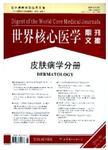异维A酸治疗史是否应成为飞行员职业的筛查项目之一
Does use of isotretinoin rule out a career in flying?作者机构:Birmingham and Midland Eye Centre City Hospital Dudley Road Birmingham B18 7QH United Kingdom
出 版 物:《世界核心医学期刊文摘(眼科学分册)》 (Digest of the World Core Medical Journals)
年 卷 期:2006年第12期
页 面:37-37页
学科分类:1001[医学-基础医学(可授医学、理学学位)] 10[医学] 100107[医学-航空、航天与航海医学]
摘 要:Aim: To evaluate whether previous isotretinoin use induces permanent, measurable, and clinically significant abnormalities in night vision such that flying is precluded, and whether potential military and civilian commercial aviators should be screened routinely. Methods: A retrospective, non-interventional, consecutive case series of 47 individuals with a confirmed history of oral isotretinoin use were compared to 20 age and sex matched controls. Results: 47 individuals (44 males and three females), age range 17-33, underwent Goldmann-Weekers dark adaptation (DA) and standard electroretinogram (ERG) according to ISCEV protocols. 34 patients showed no abnormality in any parameters. Two patients had abnormal DA and ERGs. The mean scotopic ERG b wave amplitude of the isotretinoin group was 496.5 μV (SD 51.3 μV) compared with 501.7 μV (62.31 μV) among the controls. The group mean a:b ratio was 0.55 (0.04) compared to 0.69 (0.08) in the controls. Conclusion: Previous use of isotretinoin may have caused retinal toxicity in two subjects and laboratory evidence of night blindness in 11 further subjects. One subject had subclinical changes remaining in the ERG 96 months after cessation of isotretinoin. This may justify the directed use of electrophysiological screening in professions that are night vision critical.



